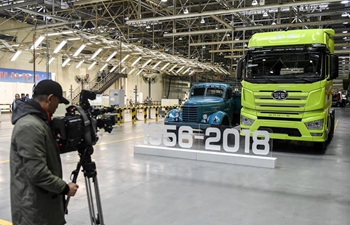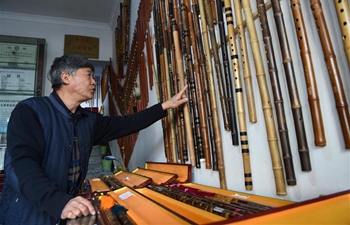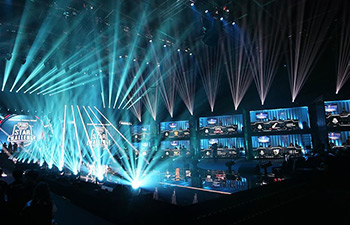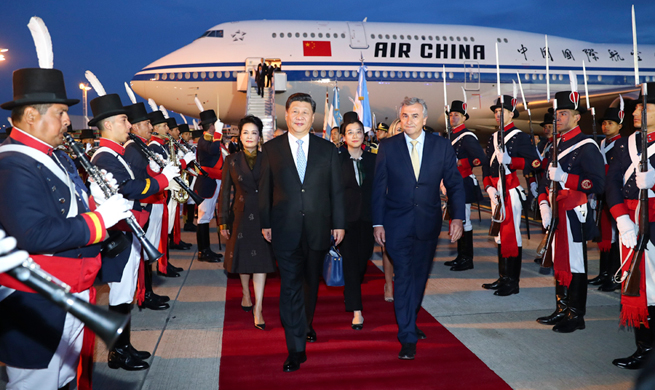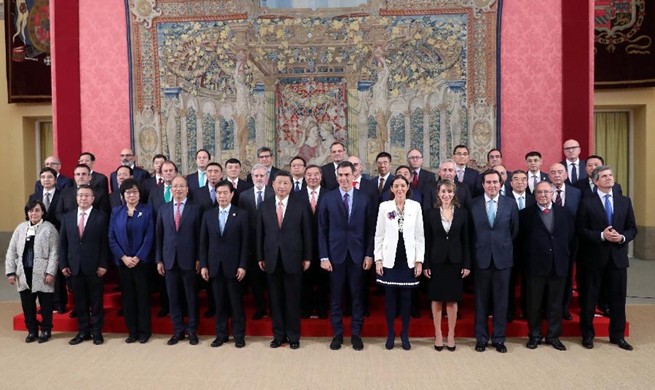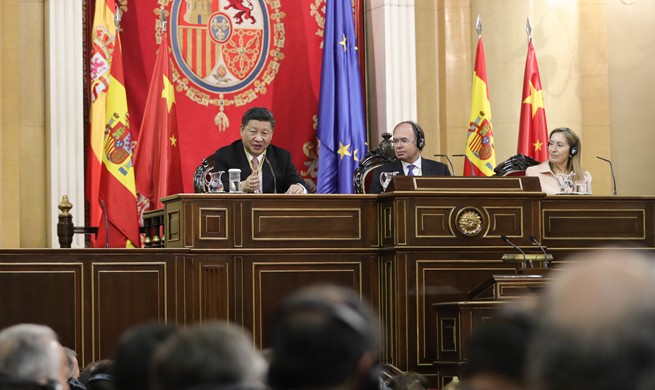LONDON, Nov. 30 (Xinhua) -- An above-inflation rise in fares on Britain's railways has sparked anger among commuters and regulatory bodies following the worst year in four years for performance on the rails.
Britain's railways announced on Friday that fares on train services next year would rise by 3.1 percent, above the latest Consumer Price Index (CPI) inflation rate of 2.2 percent.
The rise in fares announced by the Rail Deilvery Group (RDG) takes place on January 2, and follows a 3.6 percent rise in rail ticket prices at the beginning of this year, which was also above the 2017 inflation rate of 2.7 percent.
This contrasts with railway and Tube services in London run by Transport for London (TfL) which on Friday announced that for the second year running daily ticket prices would not go up.
Rail bodies and commuters were angered as this marks a rise in fares after a year of unprecedented timetable disruption.
The largest timetable changes ever seen on the railways were introduced in May, but key routes in the London and northern region failed to come close to the new timetables, with hundreds of trains cancelled or badly delayed each day.
The new timetables were quickly revised to make them easier to run with fewer services.
Anthony Smith, chief executive of the independent travel watchdog Transport Focus, said: "Passengers now pour over 10 billion pounds a year into the rail industry alongside significant government investment.
"So the rail industry cannot be short of funding. When will this translate into a more reliable railway and better value for money for passengers?"
Mayor of Manchester Andy Burnham said trains in the north were performing badly, citing two of the largest train operators across the north of England.
In past two weeks only 64 percent of TransPennine Express services ran on time, and 34 percent of services run by Northern train company were late, said Burnham.
"It's just not good enough, and in my view cannot be justified," said Burnham.
Paul Plummer, RDG chief executive explained that rising fares was part of an established strategy, making the customer pay more while government subsidies were reduced
"Successive governments have decided that farepayers should cover a greater proportion of the cost of running the railway, freeing up taxpayer funding for record levels of investment in infrastructure to improve journeys and support economic growth," said Plummer.
Plummer said the benefits of high ticket increases over the past few years were being seen in the national system now, and would be over the coming three years, with 7,000 new carriages and hundreds more trains refurbished to support 6,400 extra services a week by 2021.
"Money from fares is underpinning the improvements to the railway that passengers want and which ultimately help boost the wider economy. That means more seats, extra services and better connections right across the country," said Plummer.
The fare rise announcement came just one day after the Office of Rail and Road (ORR), the railway regulator, strongly criticized Britain's private railway companies and publicly owned rail network, and gave a three-month deadline to improve performance or face multi-million pound fines.
Punctualitiy and reliability of some private rail companies this year had reached a five-year low, the ORR said.
The ORR complained that the number of trains running on time was unacceptably low, with 85.6 percent of trains in the first half of the year on time, below the 92.5 percent target.
The ORR said: "At the level of individual passenger train operators, performance has also continued to decline this year."


